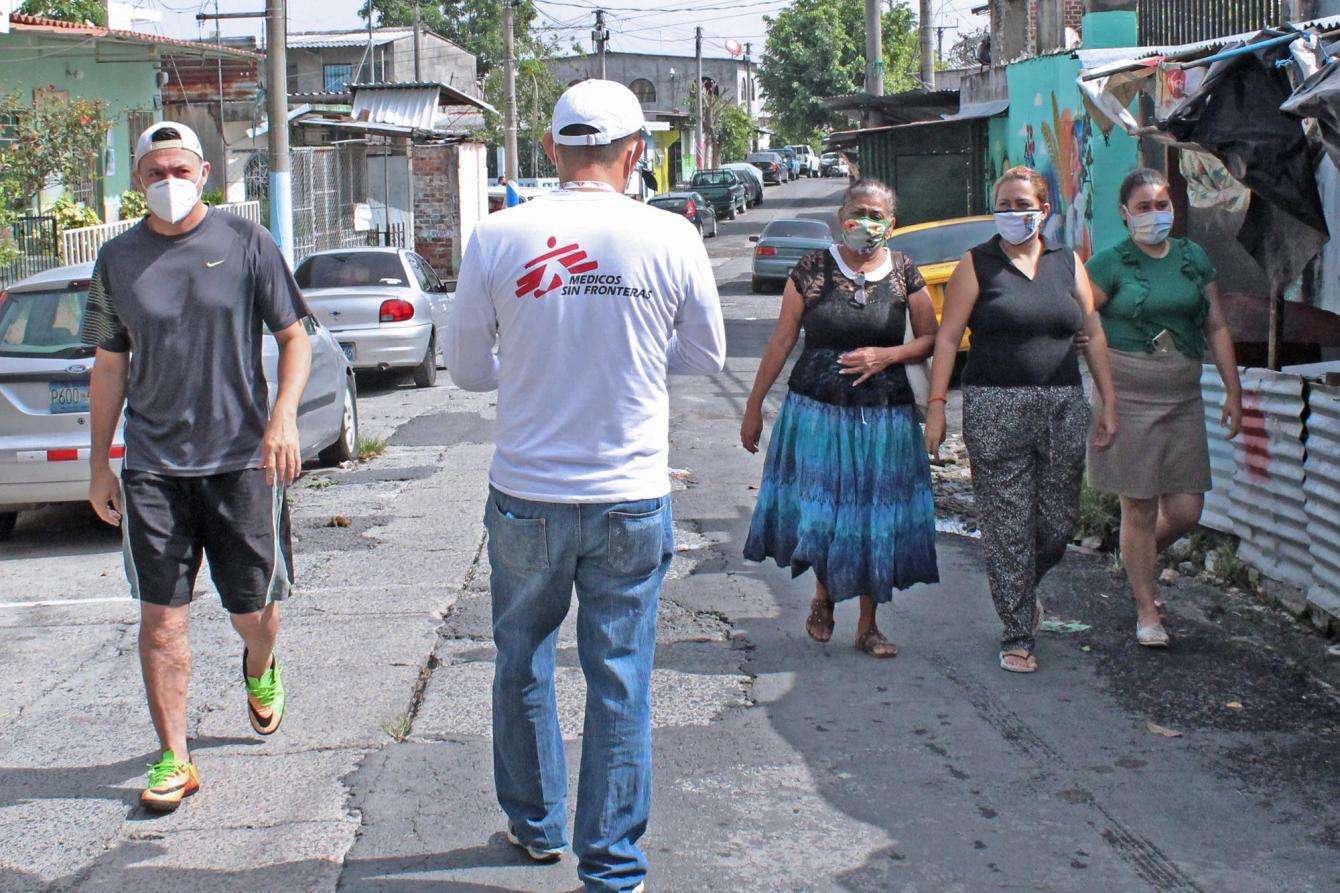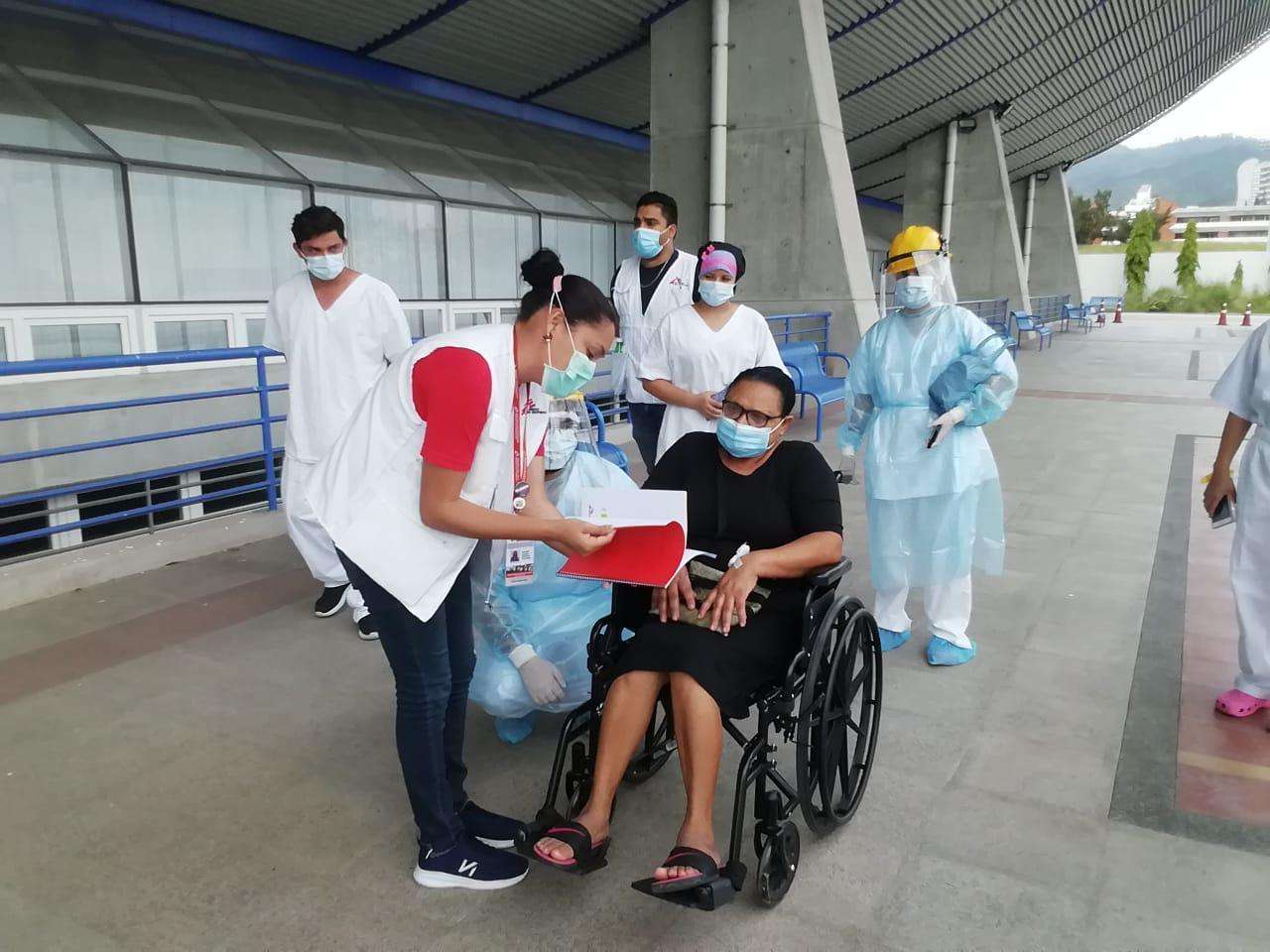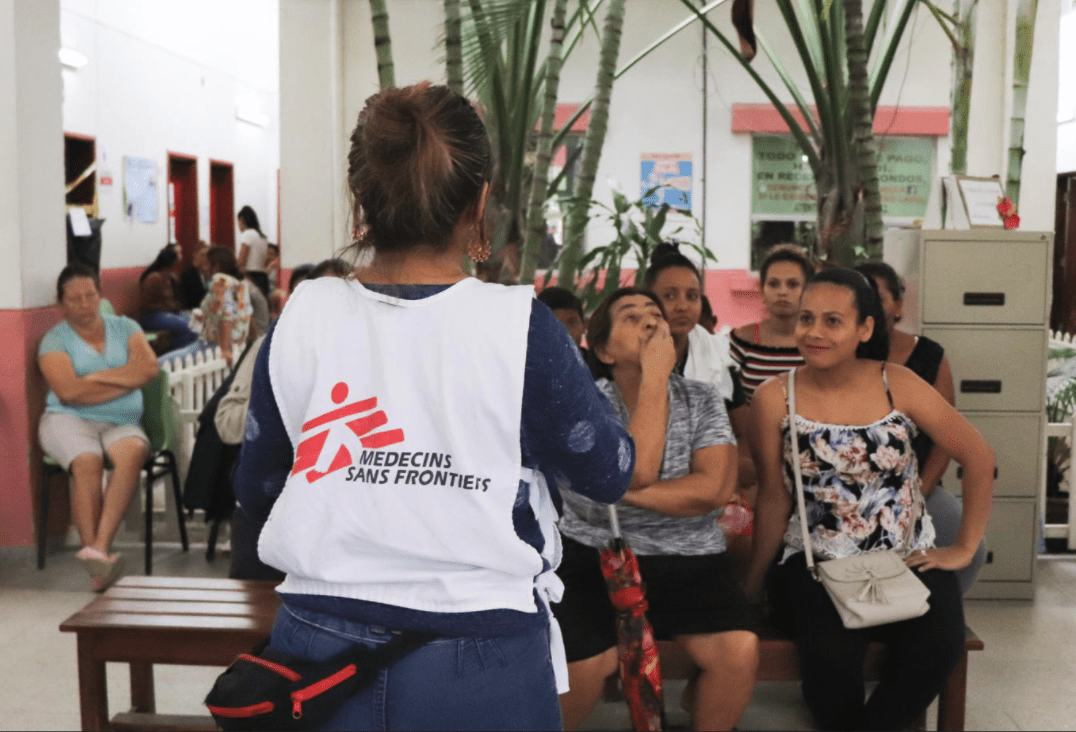Doctors Without Borders/Médecins Sans Frontières (MSF) teams in Mexico, Honduras, and El Salvador are running mobile clinics and supporting shelters, hospitals, and COVID-19 treatment centers and ambulances to respond to the medical needs in the region. Despite decreasing case numbers in these countries, the needs are still high, and MSF continues to provide care and support to migrants, asylum seekers, victims of violence, and people excluded from health systems, whose living conditions have become even more precarious during the pandemic.
The Americas region as a whole accounts for a majority of new deaths due to COVID-19—accounting for 64 percent of new deaths reported over the past two months despite making up about 13 percent of the global population, according to a report by the Pan American Health Organization (PAHO).
A high death rate in Mexico
Mexico is one of the epicenters of the pandemic in Latin America, along with Brazil and Peru. It has the fourth most deaths from COVID-19 of any country in the world. It is estimated by nongovernmental (NGO) reports, such as Amnesty International, that more than 100,000 health workers contracted COVID-19 in Mexico. Health workers have been targets of discrimination and attacks, and many now feel stigmatized as a result of their work.
In July, Mexico began to gradually relax its isolation measures, bringing the country into a ‘new normal’ for business and industry. The lockdown is being phased out in stages using a four-color traffic light scheme: red, orange, yellow, and green—with red representing greater restrictions and green for places where a return to all activities can begin. Mexico has seen a decrease in infections for the fifth consecutive week, since August 17.
As of September 14, there were 26,861 confirmed cases in Tamaulipas state and 16,454 confirmed cases in Guerrero state. In Tamaulipas state, MSF runs COVID-19 treatment centers in the cities of Reynosa and Matamoros, and is supporting infection, prevention, and control (IPC) measures in migrant shelters in Nuevo Laredo. The teams have recorded a decrease in the number of cases in both cities but are preparing for a possible resurgence of cases. In Guerrero, MSF’s project has resumed regular activities while also helping health centers and hospitals implement IPC measures.
An emergency situation in Honduras
In mid-March, the Honduran government declared an emergency situation, limiting people’s freedoms and movements. The Cortes department, in the north of the country, is the worst affected region, responsible for approximately 31 percent of confirmed COVID-19 patients.
After three months of confinement, and despite an increase in the number of cases, the economy was reopened on June 8 in various municipalities—mainly rural and agricultural—as part of an ‘intelligent reopening of the economy’.
Hospitals and health centers all over the country have reported a lack of personal protective equipment (PPE) and resources to care for patients. Various national and international news outlets have reported on cases of corruption surrounding mobile hospitals bought by the government.
Basic health care neglected in El Salvador
El Salvador put in place a similar response to Honduras, with many parts of the country in lockdown since mid-March. As of September 14, El Salvador has reported 27,009 COVID-19 cases and 788 deaths. The capital, San Salvador, is the epicenter of the outbreak. Health centers and hospitals have suspended outpatient consultations. This has left treatment for patients with chronic illnesses, those in need of family planning services, prenatal and postnatal consultations, and mental health support, and community activities neglected—specifically in areas where people have historically been affected by violence. There is a clear lack of access to basic health care services. The Ministry of Health has reported an increase in teenage pregnancies. Almost 3,000 teenage pregnancies were reported during the lockdown. As of August 21, there was a 13-day decrease in COVID-19 cases.
Providing care through mobile teams and clinics
MSF COVID-19 mobile teams are working in different parts of Mexico to establish biosafety protocols (such as IPC and water and sanitation management) in COVID-19 hospitals, community hospitals and health centers. These protocols will help to guarantee the safety of health care staff and patients. The team has worked in Mexico city and Guerrero and Oaxaca states, and is now working in Tabasco state.
In El Salvador, MSF ambulance services dedicated to transporting COVID-19 patients have continued to operate in order to alleviate the workload of the public emergency system. MSF continues to run mobile clinics in communities affected by violence in San Salvador and Soyapango. MSF is also undertaking COVID-19 prevention and health promotion activities and is providing mental health care at an isolation center for people who have been deported from Mexico and the US. Our teams are also evaluating other centers and shelters for possible interventions.

Treating patients in COVID-19 centers
In Matamoros and Reynosa, near Mexico’s northern border, MSF is caring for mild to severe patients in two COVID-19 centers installed in each city campus of the state university. Both centers have space for 20 severe patients who require concentrated oxygen and have isolation areas for mild and suspected COVID-19 patients who do not have a place to isolate themselves. These patients could be migrants, returnees, people without a home, or people who do not have enough space in their houses to isolate from their families. The centers have established a comprehensive health care system where patients can receive medical and psychosocial care services.
In Tegucigalpa, the Honduran capital, MSF has opened a treatment clinic for patients with severe COVID-19 symptoms at the National University sports facility. The objective of this project is to prevent hospitals in the metropolitan health system from becoming overcrowded and to care for patients in a comprehensive way, including mental health care, social work, and health promotion services.
Preventing infection in migrant shelters
Asylum seekers and migrants face a worsening situation during the COVID-19 pandemic due to the uncertainty of the asylum-seeking process, stigma against migrants and asylum seekers, and heightened health risks due to unhygienic conditions and lack of space in shelters. In Nuevo Laredo, northern Mexico, MSF is assessing all migrant shelters where more than 200 people are isolating and implementing relevant IPC measures. We also provide basic health care and psychosocial support to shelter residents, staff, and occasionally to members of the surrounding communities.
In Reynosa and Matamoros, MSF’s mobile clinic team offers comprehensive health care services (including medical, health promotion, mental health case, and social work) in shelters for migrants and asylum seekers. Since March, the teams have adapted their activities and have developed triages to detect possible COVID-19 cases and refer them to MSF COVID-19 centers or other facilities if needed.
In Tenosique city, in the southern state of Tabasco, MSF continues to offer comprehensive basic health care (both medical and psychological) to migrants at La 72 shelter. MSF has also assessed and implemented IPC measures and psychosocial care in 15 migrant shelters in Mexico City and one in Mexico State.
Providing care along the migration route
A multidisciplinary COVID-19 intervention team including a health promoter, psychologist, logistician, water and sanitation manager, and IPC manager, was formed to provide technical support and IPC training in migrant shelters along the Mexican migration route. This team is also providing psychosocial support to migrants and staff who are suspected or confirmed to have been in contact with someone with COVID-19.
In Matamoros, MSF is caring for asylum seekers in a makeshift camp that was formed in 2019 when thousands of people were left stranded at the US-Mexico border due to the Migration Protection Protocols (MPP)—a US policy which forces people seeking asylum in the US back to Mexico to await their asylum proceedings. MSF has a comprehensive health care team that provides health promotion to people in the camp, including COVID-19 prevention tips, and a medical team that has established a triage system to detect possible COVID-19 cases.
Mental health care hotlines
MSF has also set up a hotline and WhatsApp number so that MSF psychologists can provide psychological care remotely to migrants and refugees across the country, and to people isolated by violence in Guerrero.
In Tegucigalpa and Choloma, Honduras, MSF has set up two mental health phone lines for survivors of violence and sexual violence. Recently, MSF psychologists have reported an increase in mental health consultations.






